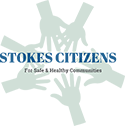Information provided by https://www.ncdhhs.gov/blog/2020-01-27/north-carolina-celebrates-10-years-smoke-free-restaurants
January marked the 10th anniversary of when North Carolina’s smoke-free restaurants and bars law went into effect. A decade later, the law remains the strongest in the Southeast.
 When the restaurant and bar smoking ban was introduced as a new law in 2009, some feared the change could hurt North Carolina businesses, but the opposite has proven true. Subsequent studiesOpen PDF showed that smoke-free polices are not only good for public health, but also had no negative impact on hospitality industry revenues or employment levels.
When the restaurant and bar smoking ban was introduced as a new law in 2009, some feared the change could hurt North Carolina businesses, but the opposite has proven true. Subsequent studiesOpen PDF showed that smoke-free polices are not only good for public health, but also had no negative impact on hospitality industry revenues or employment levels.
Over the past decade, the smoke-free law has contributed to a decrease in emergency room visits for heart attacks and asthma, reduced pregnant women’s exposure to the dangers of secondhand tobacco smoke and contributed to a decrease in the number of lung cancer deaths.
“North Carolina has been serving up smoke-free air in restaurants for 10 years now,” said NCDHHS Chief Medical Officer and State Health Director Dr. Elizabeth Cuervo Tilson. “The next time you enjoy a smoke-free meal or celebrate with friends in a bar or brewery, you can thank your favorite restaurant or bar and your local public health department for the clean, healthy air. Good health is good for business.”
Arthur Gordon, who opened Irregardless Café in Raleigh in 1975, was one of the first restauranteurs in North Carolina to recognize the value of being smoke-free.
“Everything we knew was that smoking tobacco was harmful for your health,” said Gordon on the anniversary of the smoking ban. “Having the ‘chutzpah’ to go smoke-free has shown beyond a doubt to be the correct move.”
For more testimonies from North Carolina business owners, search #10YearsSmokeFreeNC on NCDHHS Facebook and Twitter.
A partner of the DPH Tobacco Prevention and Control Branch, QuitlineNC provides free cessation services to any North Carolina resident who needs help quitting tobacco use. For more information, visit www.quitline.com or call the 24/7 helpline at 1-800-QUIT-NOW (1-800-784-8669).
